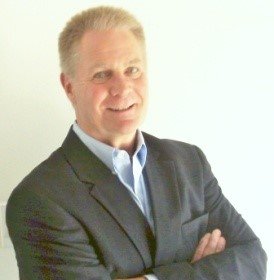Phil Faris: One of the themes for Never Too Late for Fitness Radio is developing strategies for winning the game of life. Which means putting more life into your years as we age. Unfortunately, troubling statistics that indicate many people over the age of 50 are going to be challenged to do this. Recent statistics point out that almost 40% of Baby Boomers are overweight. 72% have one or more chronic diseases. 52% lead a sedentary lifestyle, and 25% have walking disabilities that make it difficult or impossible to exercise.
To shed some light on how we got in this challenged state of health and what we can do about it is my guest, health advocate and nutritional lifestyle expert, Dr. Maureen Sullivan or as her clients like to call her, Doc Moe. She is a chiropractor with a Ph.D. in the Philosophy of Holistic Nutrition, as well as a degree in Quantum Neurology. Her mission is to help people find the real cause and underlying reason why they don’t feel well or enjoy great health. By correcting the underlying reasons, a person can grow physically, spiritually, and emotionally without the intervention of drugs and needless expensive tests and surgeries. It’s also an added pleasure to have Doc Moe on the show because we’ve been friends since high school and she’s married to one of my best friends. Thank you, Doc Moe, for being on the show today.
Doc Moe: Thank you, Phil, and thank you for what you’re doing to help the 50-year old plus generation. Very needed thing.
Phil Faris: You’re a chiropractor, and your real passion is nutrition and how it can be used to help people address the underlying causes behind their health issues. Can you describe the types of clients you work with and why they come to you?
Doc Moe: Phil, the people, should know that there are a lot of answers and hope for anyone who wants to get well. I know that you like to work with the 50 years plus crowd, but it really doesn’t matter how old someone is. It doesn’t matter if they’re 60 or 70. You can still get well and lead a better life no matter how many years you have left. Most of the clients that I work with are people who put their health before anything else. They’d rather spend their time, energy, and money on buying good food, getting exercise on a regular basis, taking whole food supplements, not cheap synthetic supplements.
They realize that their happiness and positive outlook on life and success, and even success in their relationships is directly related to their choices and behavior. So, in other words, the people that I see do not feel like victims. They may have a specific health problem like insomnia, arthritis, acid reflux, sleep apnea, osteoporosis, all the diseases that we see in people over 50, and the ones that you mentioned earlier. Another client type that I like to work with is people that are pre-diabetic, which pretty much is a big lump sum category. The kind of person I see is someone who doesn’t believe that they’re a victim, or that someone else or someone outside themselves can cure them of all their ailments. There’s a real cultural authority out there that people buy into. The people that I see don’t buy into it.
Phil Faris: When people first come to you, are they already predisposed to say, “I want to be healthy, but I’m pre-diabetic. How can you help me?” Or, are they healthy and just want to stay that way? How do people initially present themselves?
Doc Moe: I would say most of the people already have a problem. Maybe one, two, or three problems that they’ve tried to correct through drugs and sometimes even surgeries, and haven’t been helped. They’re looking for another way, an alternative way to get out of the jam they’re in.
Phil Faris: To clarify, they have a health issue, they aren’t accepting the fact that they haven’t resolved it yet. So, they’re looking for something else that can help put them in control. Is that a reasonable assessment?
Doc Moe: Yes. I like to think of it as if you were driving down the street, and a red light goes on in your car. The answer isn’t to put a bandage over the red light. Your car’s not going to get better doing that; you’re going to end up on the side of the road. Unfortunately, that’s where most Americans over 50 end up. We’re the 38th best country in the world to get old in, and that’s a sad fact. Very sad, Phil.
Phil Faris: I agree. So, they come to you. How do you help them?
Doc Moe: Well, what I mainly do is use blood labs to help people, because people know about blood labs. It’s a very common thing to do. They’ve done it with the medical profession all their lives. But I look at the blood work in a totally different way. I look at it in a functional manner. In other words, if I see two flags on their blood work, and then I go through it, functionally, I can detect 10 or 12 things that are underlying those flags. And they haven’t even shown up yet that are starting to foment in their body, and that is what could be causing symptoms and problems.
Phil Faris: You say the doctor will look at it and only give two red flags. Then, you’ll find 10. Why do you find more than what the typical doctor would find?

